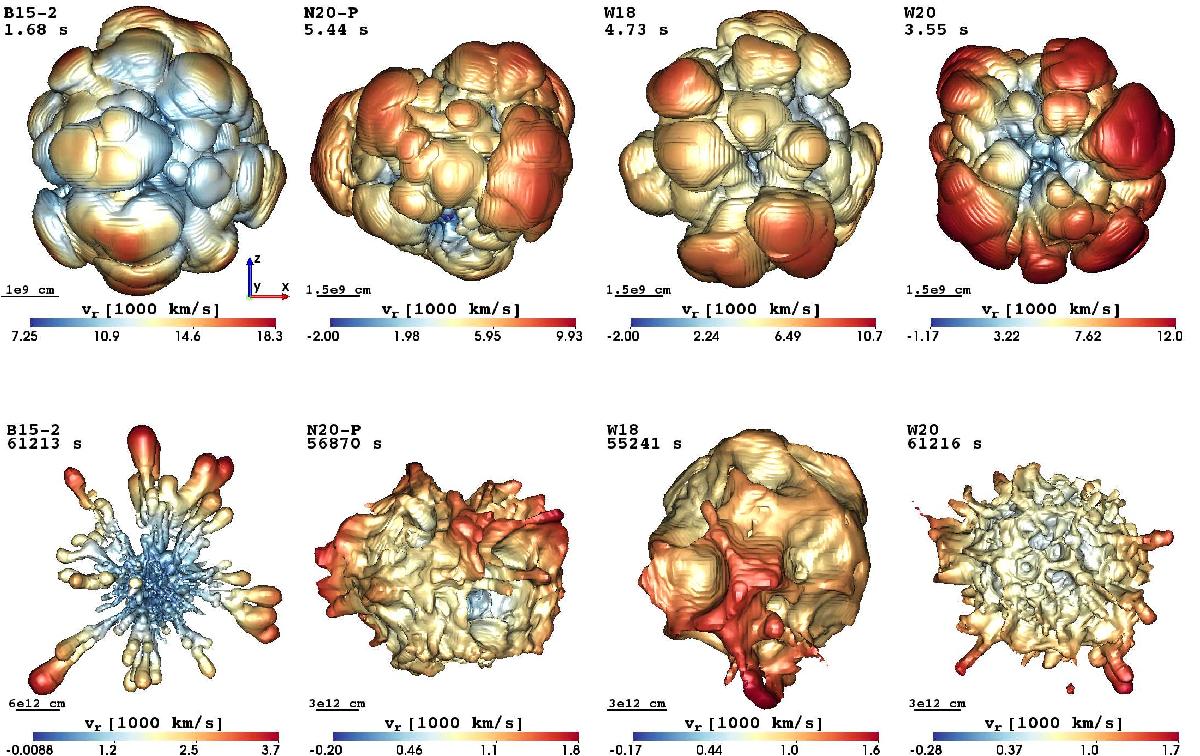Fig. 3

Morphology of radioactive 56Ni-rich matter produced by explosive burning in shock-heated ejecta. The snapshots display isosurfaces where the mass fraction of 56Ni plus the neutron-rich tracer nucleus equals 3%. The isosurfaces are shown for 3D models B15-2, N20-P, W18, and W20 at two different epochs: shortly before the SN shock crosses the C+O/He composition interface in the progenitor star at t = 1.68,5.44,4.73, and 3.55 s after bounce (upper row) and long after the shock breakout at t = 61 213,56 870,55 241, and 61 216 s (lower row), respectively. The colors give the radial velocity on the isosurface, the color coding being defined at the bottom of each panel. In the top left corner of each panel, we give the name of the model and the post-bounce time of the snapshot. The size of the displayed volume and the clumps can be estimated from the yardsticks given in the lower left corner of each panel. One notices a striking difference between model B15-2 and the other models in the final morphology of the 56Ni-rich ejecta, which arises from their specific progenitor structures and the influence of the latter on the unsteady SN shock propagation.
Current usage metrics show cumulative count of Article Views (full-text article views including HTML views, PDF and ePub downloads, according to the available data) and Abstracts Views on Vision4Press platform.
Data correspond to usage on the plateform after 2015. The current usage metrics is available 48-96 hours after online publication and is updated daily on week days.
Initial download of the metrics may take a while.










